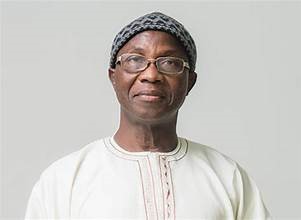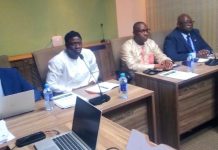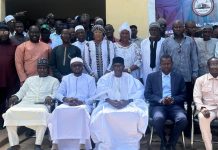By Kebba AF Touray
Hon. Suwaibou Touray, the National Assembly Member for Wuli East, delivered a measured but pointed response to President Adama Barrow’s 2025 State of the Nation Address, calling for deeper scrutiny on issues ranging from regional diplomacy to judicial delays, land disputes, and national security.
Thanking the President and cabinet ministers for their presence during the parliamentary debate, Hon. Touray said the speech focused heavily on the government’s key achievements, ongoing challenges, and future priorities. Yet, he urged his colleagues to examine the address critically, especially on foreign policy and domestic governance.
A Call for Firmer Stance on Middle East Conflict
On international diplomacy, Hon. Touray expressed disappointment that the President merely urged restraint over the escalating Israel-Iran conflict. “As Chairperson of the Organisation of Islamic Conference and recent host, the President must take a stronger stand,” he said. Touray criticized Israel’s actions in Iran as violations of sovereignty and territorial integrity, accusing it of indiscriminately killing civilians based on unfounded nuclear weapons suspicions. He contended that Iran’s nuclear program remains peaceful and that the country has been unfairly targeted by global powers with ulterior motives.
Touray insisted that condemning such aggression unequivocally would earn President Barrow greater respect both domestically and among OIC member states.
Justice Delayed, Justice Denied
Turning to legal and judicial matters, Touray applauded recent legislative enactments but underscored the urgency of addressing the country’s chronic case backlogs. “Many land disputes linger unresolved for years,” he said, “and young detainees are suffering in remand, some falling ill or developing mental health challenges due to delays.”
Highlighting the colonial roots of the nation’s prison system, he suggested that harsh conditions revealed during The Gambia’s Universal Periodic Review should have been a wake-up call. He questioned how the President secured re-election without addressing these systemic failures.
Land cases, which constitute roughly 80 percent of court matters, often drag on for more than a decade, Touray said, lamenting government indifference to a crisis that leaves citizens fighting over ownership and falling victim to fraud. “Swindlers enjoy the spoils while innocent buyers waste resources and patience in court,” he said.
He also criticized the Physical Planning Department for issuing building permits without verifying land ownership, enabling injustice and hardship for vulnerable buyers.
Touray voiced disappointment that the President did not make a strong call for expedited resolution of the land crisis, warning that millions of dalasi are lost due to governmental inaction.
Judicial Gaps in Drug Prosecutions
Citing figures from the President’s speech, Touray noted that of 1,000 drug cases recorded in 2024, only 126 resulted in convictions. He questioned the status of the remaining 874 cases and implied that many remain stalled in the courts, mirroring the broader judicial delays.
National Land Reform Needed
While acknowledging a National Land Policy under the West African Coastal Area project, Touray advocated for comprehensive land reform nationwide. “This policy cannot stop at the coast; it must address land tenure systems and institutions across the country to serve the public interest,” he said.
Security Concerns and ECOMIG’s Prolonged Presence
On security, Touray welcomed the President’s recognition of progress in the armed forces but questioned the continued deployment of the Economic Community of West African States Monitoring Group (ECOMIG) in The Gambia. “ECOMIG was meant to be temporary, yet it has been here nearly eight years,” he observed, raising concerns about the nation’s true capacity to safeguard its sovereignty.
He noted rising insecurity across West Africa, from Nigeria to Niger, Burkina Faso, and Mali, with Senegal recently entering a joint anti-terror agreement with Mali. “What is The Gambia doing?” he asked, stressing that any crisis in neighboring Senegal could affect the country directly.
He lamented the President’s silence on regional security issues and called for proactive precautionary measures.
Economic Sustainability and Inflation Discrepancies
Touray spoke on the YIRIWA development plan, emphasizing the need for a resilient economy capable of withstanding shocks like the COVID-19 pandemic and the Russia-Ukraine conflict. He stressed investment in productive sectors, job creation, and combating corruption as prerequisites for sustainability.
While praising a reported decline in inflation from 17.3 percent in 2023 to 10.2 percent, Touray challenged that this was not reflected in the prices of essential goods such as rice, sugar, cooking oil, cement, and rent, all of which reportedly continue to rise.
Regarding national debt, he cautioned that while the debt-to-GDP ratio dropped from 75.7 percent to 71.8 percent, the commonly accepted sustainable threshold is closer to 60 percent, urging the government to strive toward this benchmark.
Skepticism Over Electricity Meter Subsidy
Finally, Touray questioned the newly introduced subsidy program that reduced electricity meter costs from 8,500 to 500 dalasi, expressing suspicion that the government’s expenditures exceeded those of consumers. He cautioned that such subsidies might be financially unsustainable and requested further explanation from the responsible minister.



















